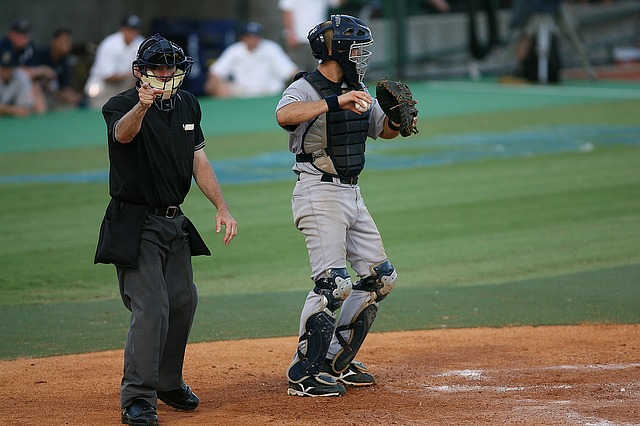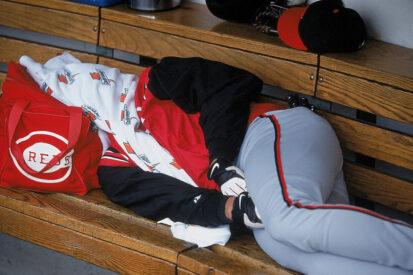Control what you can control is a common theme amongst the best ball players in the game. This is a mental tool that every elite athlete possess. Luckily, having this mindset of controlling what you can control is something that may be developed. If you do not have this mindset right now, it is completely fine. You will have the ability to work on it once you are aware of what it really means.
A very common example of this would be when you are up to bat and the umpire calls a strike when it was clearly 3 balls off the plate. This will happen and how you respond to that situation weighs heavily on what kind of result you will get throughout the rest of your at-bat.
Let’s start off with some of the common things that are not in our control. The first is that you cannot control other people. Just like in the example above, in the eyes of the umpire, the “strike” was a strike. In your eyes and possibly others, it was a ball. Everyone has their own perspective of that situation and the only one you can control is yours.
The second is that you cannot control outside factors. Two of the biggest outside factors would be the environment and the field. The environment such as the temperature and the wind are things we definitely cannot control. We must adapt to play in those conditions whether it is cold enough to snow or it is extremely hot. There are many field I played on where the wind blows straight in from right field so I would adjust my sights to hit the ball to left center field or to have a lower launch angle. We have to know the field that we are playing on. How far is the fence from the foul line? How does the grass and dirt play? Are there lots of pot holes and chances for bad hops? All these questions are things you, as a ball player, have to know before the game.
The last is that you cannot control the past. The past is the past so let’s leave it there. One of the prominent examples I can think of is when a hitter has a terrible first at-bat, he cannot let go of it. You can already tell the rest of the day he will have. If he strikes out swinging in the first at-bat, he is likely to strike out 2 or 3 more times because he is dwelling on that first one. Same thing if a player makes an error early on. If he dwells on making that error, it is likely to happen again.

There are 3 things you can do right away to work on controlling what you can control:
1. Awareness
We have to be aware of what we can and cannot control. There are lots of smaller details that go into each situation, but you must evaluate each detail and ask yourself, “Is this something I can control?” Above are some of the categories you can break them down into. Once we are aware of them, you can move onto the next step. Start small and fix one thing at a time until you are fully aware of what is controllable or not.
2. Put yourself in everyone else’s shoes
This is a skill that takes some time to build, but the more you can do this, the better off you will be. I only learned to put myself in the umpire’s shoes toward the end of my career and it helped me to let go of “missed” calls that would go against me. Since I was able to let go, I was able to focus on the next pitch completely and achieve the results I was looking for.
3. Where your attention goes matters
There are many things we can control such as our effort, attitude, energy, mindset, focus, and much more. These are what we must focus on to be successful. We can only focus on so much and if we are focusing on things we can’t control, it takes away from focusing on what we can control. If you are hitting and have a the umpire call a “strike” on you that you disagree with, it is best to let that go and focus on the next pitch. If you are worried that he will do it again or you are still upset at the call, your chances of having a great at-bat decrease dramatically.
Take the time to learn to control what you can control and you will be much more successful. We have to be aware of what is controllable and what is not, we should learn to put ourselves in other’s shoes to see their perspective, and we must pay attention to where our focus is going. We all have the potential to achieve this so let’s maximize by adding this to our mental tool box!








